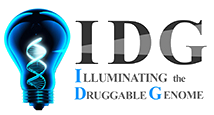Drug results: 6
| itraconazole | A triazole antifungal agent that inhibits cytochrome P-450-dependent enzymes required for ERGOSTEROL synthesis. |
|
| carbamide | A compound formed in the liver from ammonia produced by the deamination of amino acids. It is the principal end product of protein catabolism and constitutes about one half of the total urinary solids. |
|
| ciclopirox | The mechanism of action of ciclopirox has been investigated using various in vitro and in vivo infection models. One in vitro study suggested that ciclopirox acts by chelation of polyvalent cations (Fe+3 or Al+3) resulting in the inhibition of the metal-dependent enzymes that are responsible for the degradation of peroxides within the fungal cell. The clinical significance of this observation is not known. |
|
| fluconazole | Triazole antifungal agent that is used to treat oropharyngeal CANDIDIASIS and cryptococcal MENINGITIS in AIDS. |
|
| ibuprofen | A nonsteroidal anti-inflammatory agent with analgesic properties used in the treatment of RHEUMATISM and ARTHRITIS. Concerns that anti-inflammatory drugs such as ibuprofen may worsen COVID-19 circulated widely in the early months of the pandemic. FDA has stated that it is not aware of scientific evidence connecting the use of NSAIAs, such as ibuprofen, with worsening COVID-19 symptoms and will communicate publicly when more information is available. |
|
| terbinafine | A naphthalene derivative that inhibits fungal SQUALENE EPOXIDASE and is used to treat DERMATOMYCOSES of the skin and nails. |
|



